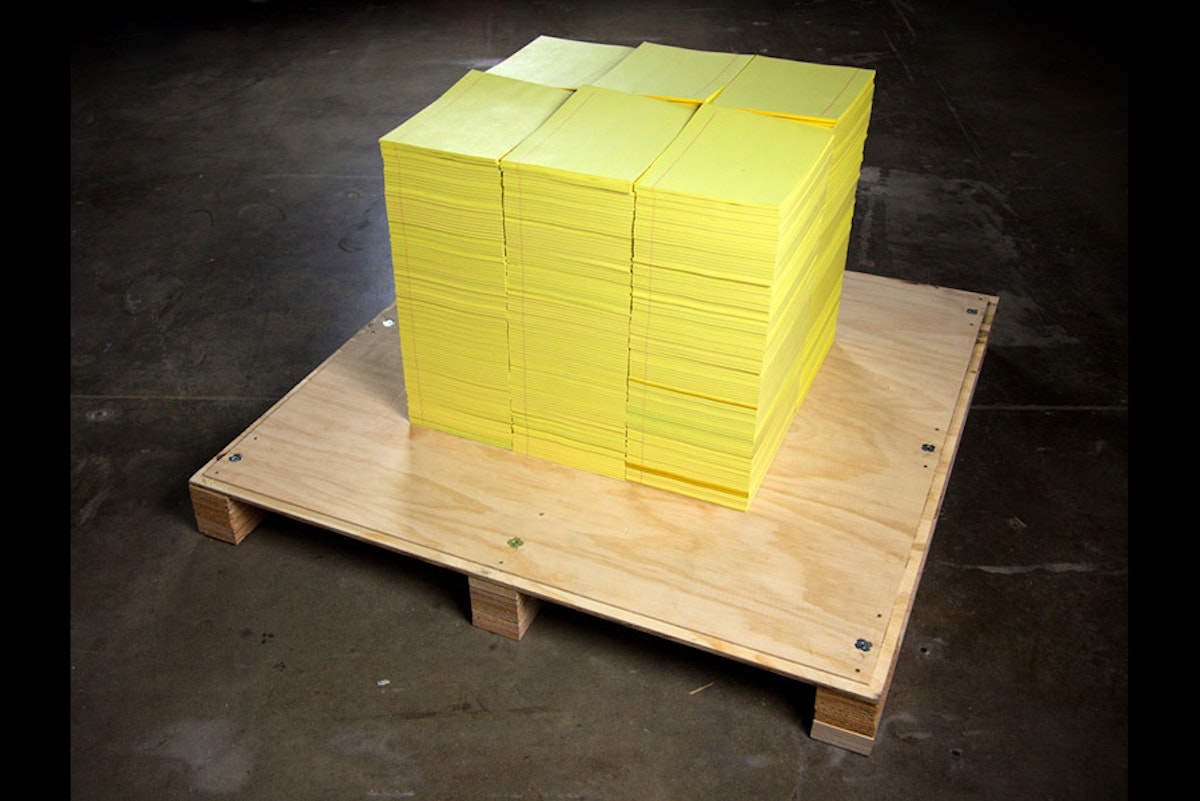Matt Kenyon to Speak at Global TED2015 Conference
Matt Kenyon, artist and U-M Stamps School of Art & Design Professor, will become part of an elite group this month. He was selected as one of twenty-one game-changing innovators and trailblazers hailing from fifteen countries to become an International TED2015 Fellow. He will present his TED Talk at the upcoming TED2015 Global Conference, March 16–20 in Vancouver, BC, Canada.
Q&A with Matt Kenyon
Q: With a body of work that explores the “intersection of technology and American culture,” you've had a very prolific career. You’ve won many awards, including the distinguished FILE Prix Lux Art prize, and your work has been been presented internationally. What motivated you to apply to TED at this point?
Kenyon: One of my favorite quote by punk rock musician Jello Biafra sums it up: “Don’t hate the media. Become the media.” I think that TED produces great content and provides a really great platform to amplify relevant social and political issues that are present in my work—which includes everything from the effects of global corporate operations to military-industrial complexes. I also feel strongly that artists are sometimes underrepresented in many important discussions, which is something that TED agreed with me about during my interview process.
Are there any current political or social issues that you will address in your talk?
I’ll be speaking about one of my art projects titled “Notepad” that was recently added to the collection of the Museum of Modern Art (NYC). “Notepad” looks like an everyday yellow legal pad of paper—one that a politician might carry under their arm. The vertical and horizontal lines of each page of the notepad are constructed with micro-printed text, printed using a special process used in printing currency and anti-counterfeiting legal documents.. What is important about this specific text is that it contains the names and details of Iraqi civilian casualties resulting from the US-led invasion in 2003. The notepads have acted as a Trojan Horse—I’ve smuggled them into the hands of those in the United States Congress in various ways, and have encouraged people to write to their government officials on the paper, with the hope that this unwanted and unacknowledged civilian body count data will make its way into official governmental archives.

Your work is very unconventional in terms of its physicality. How does a project like “Notepad” exist within the context of a museum collection?
It is very unassuming as a physical object. You would not know it from an everyday legal pad unless you examined the lines with a magnification lens. There are a series of video documents that accompany the work. These documents help the viewer to make sense of the work and how it functions in the world outside of the gallery.
What do you hope that people will take away from your talk?
I’m really hoping to draw attention to some important things that are happening in the world. History is repeating itself right now — especially if you look back to the Coalition of the Willing that helped invade Iraq in 2003 and fast forward to today, where the U.S. just reauthorized military operations in Iraq. In light of this, I'm hoping to get more people to participate in the project and to use the paper. It’s symbolic of the fact that we need to learn from our mistakes.
How can people participate in your project?
They can contact me. I’ve sent this paper all over the world. What’s so intriguing about it to me is that paper has the potential to circulate and to live on and have multiple lives. I hope one day to do a study and track these pieces of paper down — I like to think that maybe when history is written in this time, it won't be so one-sided.
Kenyon is available to speak with journalists about his upcoming TED Talk.
Press contact: Sydney Hawkins, 734-615-8765